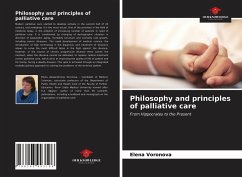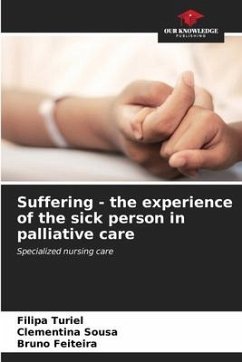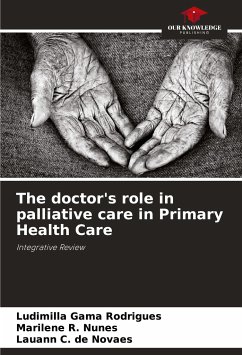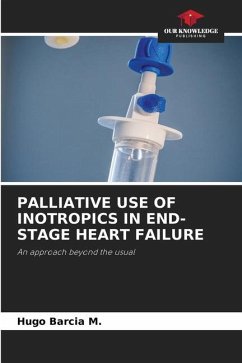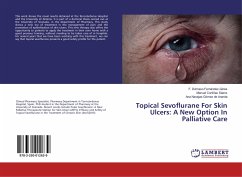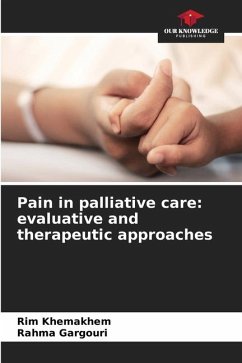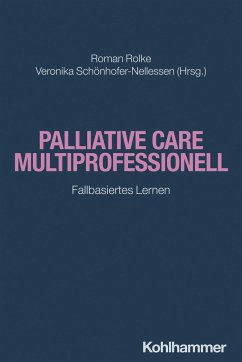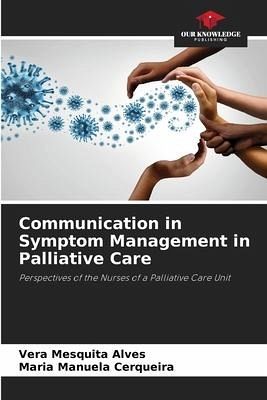
Communication in Symptom Management in Palliative Care
Perspectives of the Nurses of a Palliative Care Unit
Versandkostenfrei!
Versandfertig in 6-10 Tagen
30,99 €
inkl. MwSt.

PAYBACK Punkte
15 °P sammeln!
Palliative care is also preventive care, which requires the health professional to have specific skills in ethics, communication, symptom management, family support, support in the grieving process and teamwork. Addressing the suffering of the person facing the last stage of life and their family, helping them to live until the end, requires rigorous care that focuses on the well-being of those they care for. In this sense, it is essential to provide excellent care to the person and family facing the end of life. The research study focused on communication as a non-pharmacological strategy for...
Palliative care is also preventive care, which requires the health professional to have specific skills in ethics, communication, symptom management, family support, support in the grieving process and teamwork. Addressing the suffering of the person facing the last stage of life and their family, helping them to live until the end, requires rigorous care that focuses on the well-being of those they care for. In this sense, it is essential to provide excellent care to the person and family facing the end of life. The research study focused on communication as a non-pharmacological strategy for symptom control. Communication is understood by the study participants as a strategy in symptom management that can be carried out in many different ways. The family should be involved in the care process. The knowledge of the sick person is fundamental for a more individualized intervention and therapeutic humor is an important communication strategy in Palliative Care.



